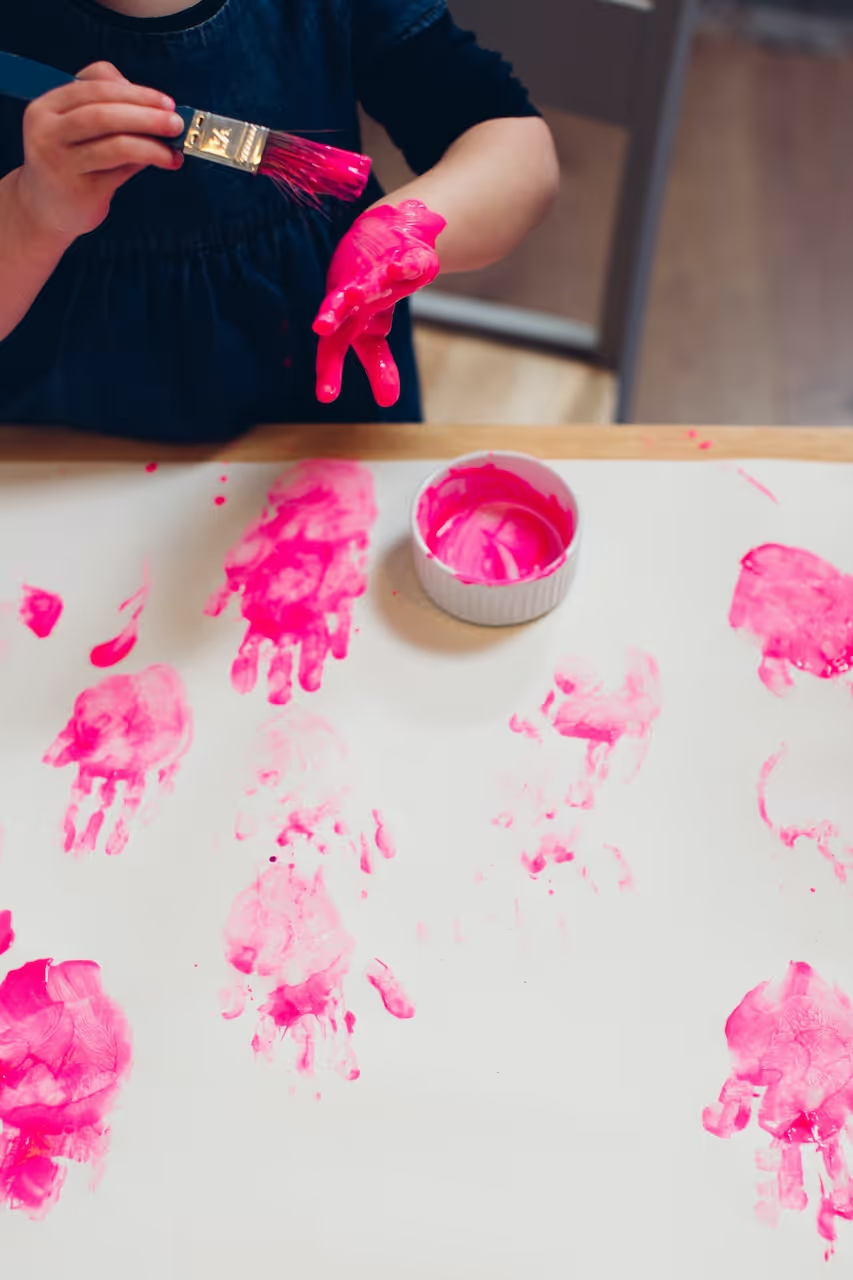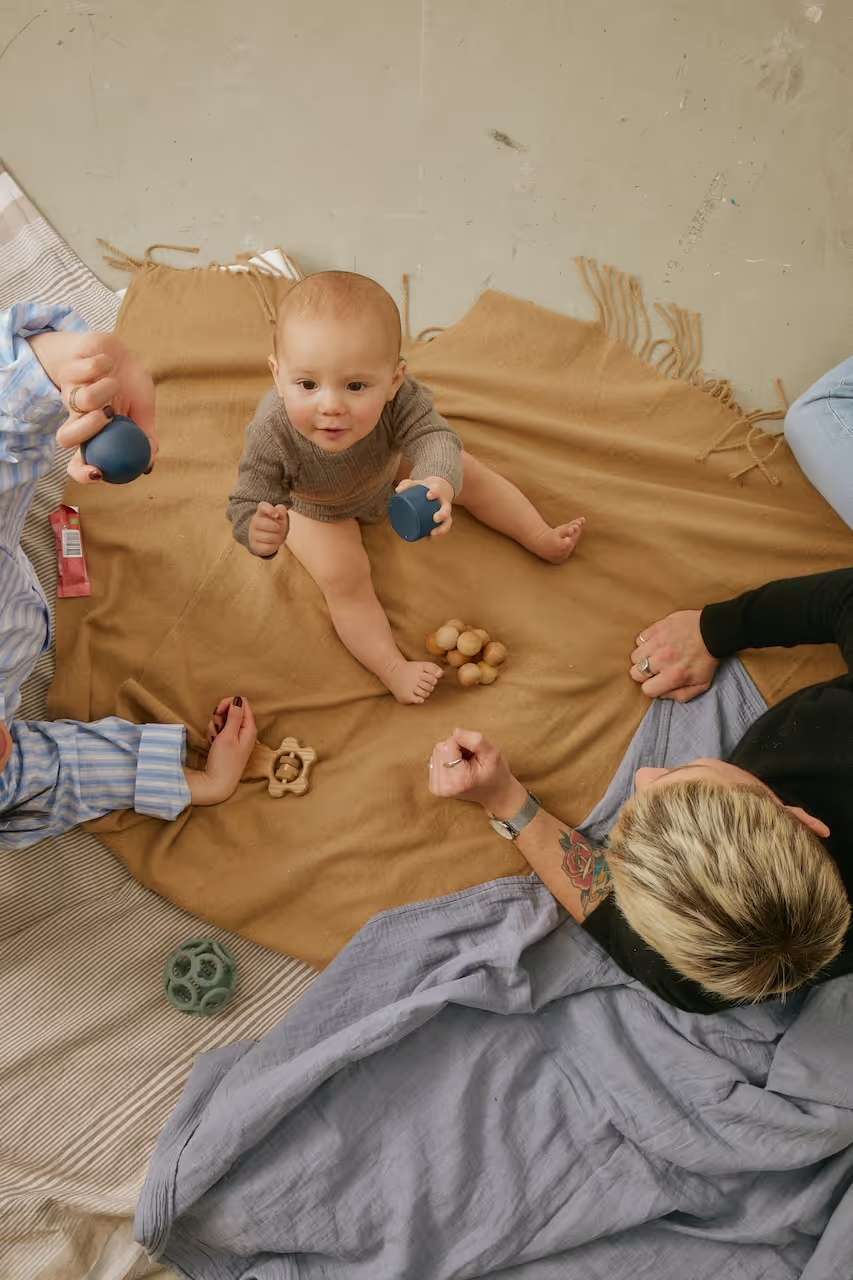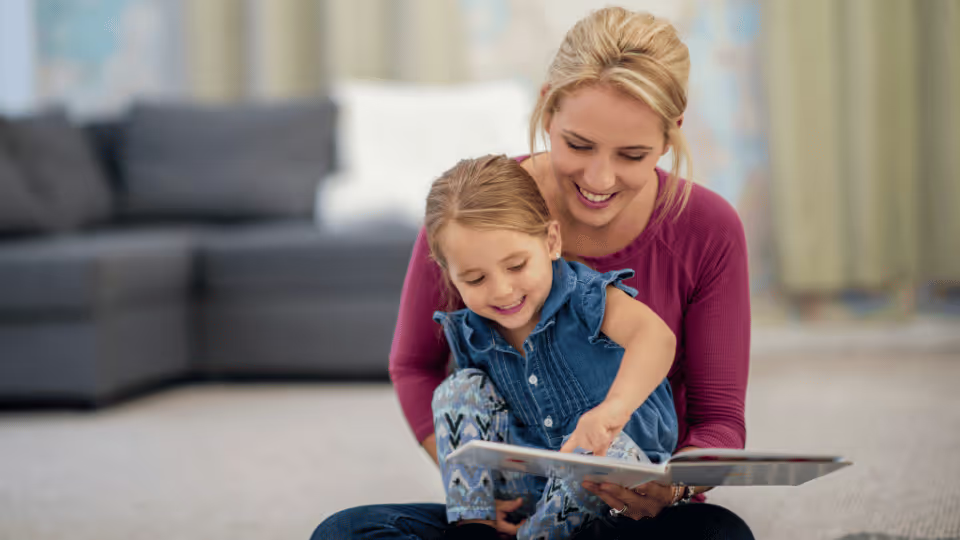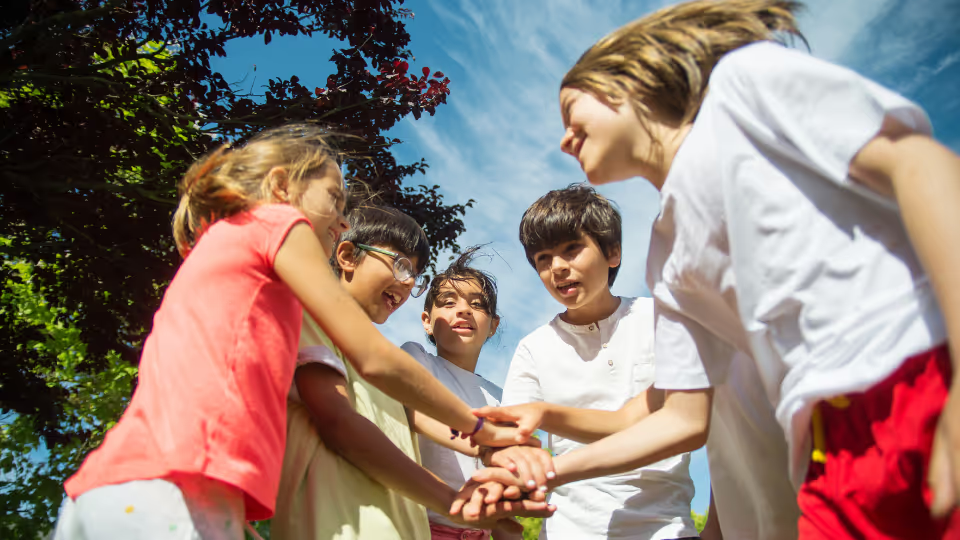
Coral Care content is reviewed and approved by our clinical professionals so you you know you're getting verified advice.
Find effective support for developmental delays, quickly.



Concerned about your child's development?
Our free screener offers guidance and connects you with the right providers to support your child's journey.
Play is not merely a way for kids to have fun. It is an essential tool that fosters social, emotional, cognitive, and communication skills and a fundamental aspect of their development. Below we’ll explore six types of play that will not only be enjoyable for your child but also support their growth and learning.
1. Pretend Play:
Pretend play is a magical world where children can unleash their imagination and creativity. During imaginative play, your child develops storytelling abilities, practices using new vocabulary, and improves their conversational skills. In addition, they learn to express themselves more effectively, building a strong foundation for future communication and social interactions.
Pretend play ideas for toddlers:
- Teddy Bear Picnic: Arrange a picnic with your toddler and their favorite stuffed animals or dolls. Encourage them to pretend to serve snacks and drinks to their "guests."
- Animal Parade: Have your child pretend to be different animals and create a parade around the house or yard. Join in and pretend to be an animal too!
Pretend play ideas for preschoolers:
- Doctor's Office: Set up a pretend doctor's office with toy medical equipment, bandages, and a waiting area. Children can take turns being the doctor, nurse, and patient.
- Space Adventure: Build a spaceship out of blankets and pillows, and journey together into space. Children can explore different planets, meet aliens, and learn about the wonders of the universe.
Pretend play ideas for school aged children:
- Famous Explorers: Research famous explorers from history and encourage your child to role-play as one of them, embarking on exciting journeys to discover new lands and cultures.
- Spy Mission: Create a thrilling spy mission where your child becomes a secret agent, solving mysteries and completing missions. Set up clues and puzzles for them to decipher.
2. Sensory Play
Sensory play is an exciting way for children to explore and experience the world around them through their senses. Engaging in sensory activities, such as touching, tasting, and smelling, allows children to explore and comprehend the world around them through a multi-sensory approach. Sensory play enhances cognitive, motor, and social development. It promotes problem-solving abilities, language and communication skills, and encourages creativity and imagination. Moreover, sensory play aids in refining fine and gross motor skills, improving coordination and dexterity.
Sensory play ideas for babies:
- Texture Exploration: Offer babies a variety of safe textures to touch and feel, such as soft fabrics, smooth plastic toys, bumpy balls, or fuzzy blankets.
- Sensory Bags: Create sensory bags by filling resealable plastic bags with colorful gel, water, or even hair gel mixed with food coloring. Seal the bags tightly and let babies squish and move the contents.
Sensory play ideas for toddlers:
- Sensory Bins: Create themed sensory bins with materials like rice, dried beans, kinetic sand, or shredded paper. Add small toys, scoops, and containers.
- Ice Play: Freeze small toys or colorful objects in ice cubes and let toddlers use warm water or their breath to melt the ice and discover the hidden treasures.
Sensory play ideas for preschoolers:
- Sensory Art: Combine sensory elements with art by offering materials like textured paper, fabric, and foam. Preschoolers can use these materials with paint, glue, and other art supplies to create tactile masterpieces.
- Scented Station: Set up a scent station with various scents, such as herbs, fruits, or essential oils. Let preschoolers smell and guess each scent.
Sensory play ideas for school aged children:
- Science Experiments: Engage kids in sensory-rich science experiments, such as making slime, creating volcanoes, or exploring chemical reactions with safe household items.
- Taste Test Challenge: Arrange a taste test challenge with various foods. Kids can use their taste buds to identify different flavors and textures.

3. Board Games
Introducing age-appropriate board games is a fantastic way to combine fun and learning. Games promote social interaction and teamwork. Children learn valuable skills while playing board games such as turn-taking, following directions, and problem solving. These games also provide opportunities for expanding vocabulary and understanding basic concepts.
Games ideas for toddlers:
- Seek-a-boo
- Feelings Exploration: Use emotion cards to help toddlers identify different feelings and expressions.
Board Games ideas for preschoolers:
- Race to the Treasure
- Keekee the Rocking Monkey
Board Games for school aged children:
- Scrabble Junior
- Kids on Stage
4. Building Blocks
Blocks and Legos are more than just fun toys- they are tools for enhancing your child’s spatial awareness, problem solving abilities, and creativity. Your child learns about balance and stability as they construct various structures. As they stack, balance, and manipulate the blocks, they enhance their fine motor skills and hand-eye coordination. Ask open-ended questions that stimulate your child’s language skills and encourage descriptive language while building.
Building ideas for babies:
- Music and Rhythm: Encourage your baby to tap the blocks together to create sounds.
- Block exploration: Introduce different types of blocks with various textures, shapes, and colors.
Building ideas for toddlers:
- Sorting and matching: Offer blocks of different shapes and sizes. Show your baby how to sort them based on attributes like color or size.
- Stacking and toppling: Demonstrate how to stack blocks one on top of the other and let your baby watch as the tower grows taller. Encourage them to knock the tower down, which is not only entertaining but also helps them understand cause and effect.
Building ideas for preschoolers:
- Collaborative building: Promote teamwork and social skills by having preschoolers build together. They can work on a shared project, combining their ideas and efforts.
- Bridges and roads: Provide blocks to create bridges and roads. Preschoolers can build a bridge over a "river" or lay out roads for toy cars and trucks to travel on.
Building ideas for school aged children:
- Tallest structure contest: Organize a friendly competition to see who can build the tallest structure with blocks.
- Story-based building: Read a story together and then encourage your children to build scenes or characters from the story using blocks. This ties in literacy with building play.
Storytelling and Book Reading
Reading regularly with your child is one of the best ways to enhance language, literacy, and cognitive development. As you read together, ask questions about the characters, the plot, or how they would approach challenges faced in the story. Reading to your children is proven to be the best indicator of later academic success across all subjects.
Reading ideas for babies:
- Engaging books: Opt for board books with simple illustrations, basic concepts like shapes, colors, and animals, and touch-and-feel elements
- Nursery rhymes: Introduce your baby to the rhythm of language by singing nursery rhyme books.
Reading ideas for toddlers:
- Repeat favorite books: Babies love repetition, so don't hesitate to read their favorite books over and over again. It reinforces learning and familiarity.
- Picture Walks: Before reading a new book, take a "picture walk" with your toddler. Flip through the pages together, discussing the pictures and asking questions about what they see. This builds excitement and prepares them for the story.
Reading ideas for preschoolers:
Rhymes: Introduce your preschooler to books with rhyming text and poems. Rhymes make reading engaging and help develop phonemic awareness, a crucial skill for early literacy.
Relate to Real Life: Select books that reflect your toddler's interests or experiences, such as books about going to the park, visiting the zoo, or celebrating holidays. This makes the story more relatable and meaningful.
Reading ideas for school aged children:
- Write their own book: Encourage your child to create and illustrate their own books. If they’re not yet writing, let them dictate the story while you write it down.
- Story Sequencing: Print or draw pictures representing key events from the story. Have your child arrange the pictures in the correct order to practice sequencing skills.
6. Outdoor Play
Outdoor play provides a treasure trove of learning opportunities for children. Activities like goin to the park, playing in sand, dirt, and water, and going on nature walks allow children to experience new sights and sounds while also promoting their physical development, like coordination and balance. Exposure to nature is linked to improved attention spans and reduced stress levels.
Outdoor play ideas for babies:
- Nature Walks: Take leisurely strolls with your baby in a stroller or baby carrier through parks or nature trails. Point out various sights and sounds, such as birds chirping or leaves rustling, to encourage their curiosity and observation skills.
- Bubbles: Blow bubbles for your baby to watch and reach out to. The floating bubbles can captivate their attention and aid in developing hand-eye coordination.
Outdoor play ideas for toddlers:
- Nature Scavenger Hunt: Create a simple scavenger hunt list with items commonly found in your backyard or local park, such as a pinecone, a yellow flower, or a smooth stone. Encourage your toddler to find each item, promoting observation skills and a connection with nature.
- Water Play: Offer various water play activities like filling buckets, using watering cans, or playing with water tables.
Outdoor play ideas for preschoolers:
- Obstacle Course: Create an obstacle course using hula hoops, cones, and cushions. Guide your child through the course, encouraging them to crawl under, jump over, and navigate through the obstacles.
- Nature Art: Gather leaves, flowers, and twigs, and let your child create art using these natural materials. Stick leaves onto paper, make flower collages, or use twigs as paintbrushes for a unique outdoor art session.
Outdoor play ideas for school aged children:
- Campout in the Backyard: Set up a tent in the backyard and let the kids experience a mini-campout. They can tell stories, stargaze, and enjoy sleeping under the open sky.
- Gardening: Involve your child in simple gardening tasks like planting seeds, watering plants, and harvesting vegetables. This hands-on experience instills responsibility and a sense of accomplishment as they watch their garden grow.
By incorporating various play activities into your child’s routine, you are providing them with valuable learning opportunities that support their development. Let the play begin and watch your child flourish!



.avif)

